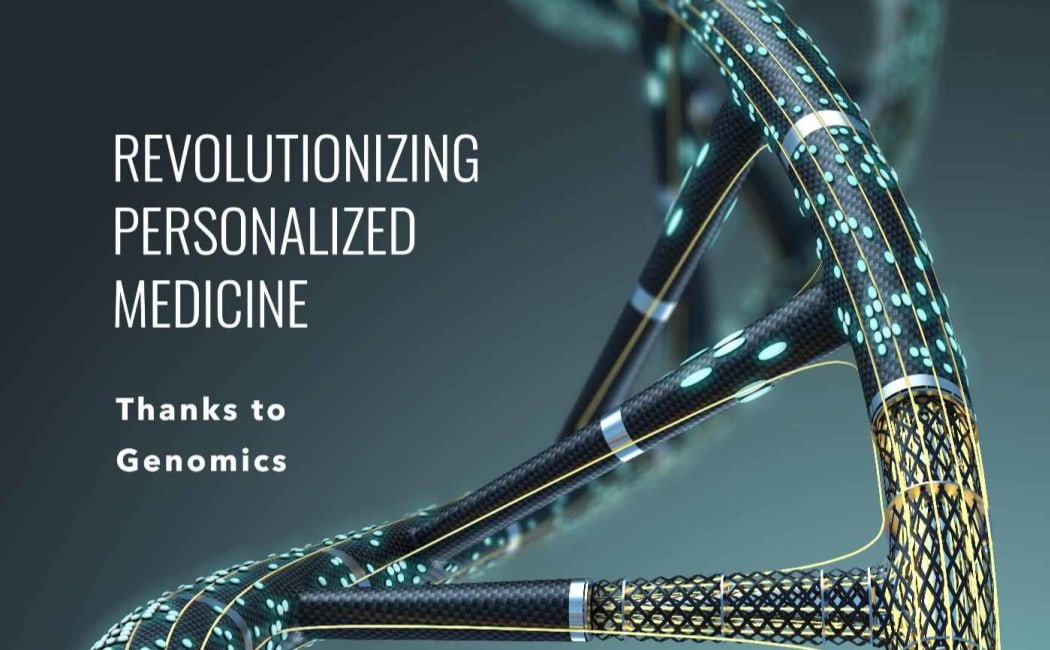Personalized Medicine: How Genomics & AI Are Revolutionizing Healthcare

Personalized Medicine: How Genomics & AI Are Revolutionizing Healthcare
Introduction
In recent years, genomics and artificial intelligence (AI) have joined forces to transform healthcare from one-size-fits-all to deeply individualized care. What once sounded like science fiction—tailoring treatment based on a person’s DNA, lifestyle, and environment—is increasingly becoming reality. Over the next few years, these technologies promise to reshape how diseases are predicted, diagnosed, treated, and prevented.
Key Drivers Behind Personalized Medicine
- Genetic Sequencing Advances: Costs for whole-genome sequencing (WGS) and whole-exome sequencing (WES) have dropped, making it feasible to understand patient DNA in much finer detail.
- Biomarker Discovery & Multi-Omics: Integrating data from genomics, proteomics, transcriptomics, and metabolomics gives a richer picture of disease at molecular levels.
- AI & Machine Learning: These tools sift through massive datasets to find patterns human doctors can’t always see—improving risk prediction, drug response, and diagnostics.
- Patient-Centered & Prevention Focus: The focus is shifting upstream—prevention of disease, early detection, and lifestyle interventions, not just reactive treatment.
- Regulatory & Ethical Pressure: Data privacy, equitable access, transparency in AI decisions, and fairness are all becoming central concerns.
Major Applications & Real-World Impacts
The combination of genomics + AI is already changing how healthcare works in many areas. Here are some examples:
- Precision Oncology: By profiling tumors at the genetic level, clinicians can choose targeted therapies that work better and have fewer side effects. AI helps interpret mutation data quickly.
- Pharmacogenomics: Predicting how a person will respond to a drug based on their genetic makeup—to both maximize efficacy and reduce adverse reactions..
- Early Disease Detection & Risk Scoring: Polygenic risk scores, AI algorithms, and genetic biomarkers help spot risks before symptoms appear. This enables preventive measures.
- Rare Disease Diagnosis: Many rare disorders have genetic causes. AI can help identify which genetic variant is likely pathogenic, speeding up diagnosis where conventional methods struggle.
- AI-Enabled Genomics in Population Health: Analyzing large, diverse populations to understand disease spread, genetic risk across demographics, and enabling public health interventions.
Challenges & Limitations to Overcome
Even with great promise, there are several significant hurdles before personalized medicine with genomics + AI becomes fully mainstream:
- Data Privacy & Security: Handling sensitive genomic and health data needs strong protections, clear consent, and secure storage.
- Bias & Representation: Many datasets lack diversity—genomic studies often overrepresent populations of European descent. AI models trained on biased data can worsen health disparities.
- Interpretability of AI Models: Doctors need to understand *why* an AI made a certain recommendation—not just what it recommends. “Black-box” models risk lowering trust.
- Regulatory & Ethical Governance: Clear rules for using AI in diagnostics and treatment, oversight, ethical review, and equitable access are still catching up.
- Cost & Infrastructure: Deploying AI and genomics requires investment in sequencing, computational power, cloud infrastructure, and skilled workforce. Many health systems are under-resourced.
Emerging Trends to Watch (Next 3-5 Years)
Over the coming years, several trends are likely to accelerate the impact of genomics + AI in personalized medicine:
- Large Language Models & Genomic Intelligence: LLMs are being trained to understand genetic texts, variant databases, and literature—helping prioritize gene candidates, interpret research, and make predictions.
- Federated Learning & Privacy-Preserving AI: Solutions that allow AI training across multiple institutions without sharing raw patient data to maintain privacy.
- Real-Time Genomic Diagnostics: Point-of-care genomic tools and rapid sequencing will allow near-instant diagnostics, especially critical for acute illness and cancer.
- Integration of Multi-Omics & Clinical Data: Combining genetic, proteomic, metabolomic data with EHRs and lifestyle data to build holistic patient models.
- Equity in Access & Ethical AI Standards: Efforts to ensure that benefits of personalized medicine reach across different socio-economic, ethnic, and geographic groups. Also, creation of global ethical standards.
Practical Steps for Health Systems & Researchers
To translate promise into reality, health systems, researchers, and policy makers should consider the following actions:
- Build Diverse Genomic Databases: Include populations from different ethnic backgrounds to reduce bias and improve generalizability.
- Invest in Infrastructure: Expand sequencing labs, secure data storage, cloud computing, AI platforms, and bioinformatics tools.
- Strengthen Ethical & Regulatory Frameworks: Create clear regulation around AI in healthcare, consent, data use, and accountability.
- Train Healthcare Professionals: Educate clinicians, genetic counselors, and lab specialists to interpret genomic data and AI models.
- Implement Multi-Disciplinary Teams: Encourage collaboration among geneticists, AI experts, clinicians, bioinformaticians, and ethicists.
- Promote Patient Engagement & Transparency: Involve patients in decisions, make AI outputs explainable, and protect patient privacy and data ownership.
Conclusion
The convergence of genomics and AI is ushering in a new era of healthcare—one where treatments are intelligently tailored, diseases are caught earlier, and prevention becomes deeply personalized. While challenges like bias, ethics, cost, and regulatory alignment remain, the trajectory is clear: healthcare is moving toward being predictive, precise, participatory, and patient-centric.
As these technologies mature over the next 3-5 years, we can expect more real-world applications, fairer access across populations, and outcomes that improve both quality of life and longevity. For patients, clinicians, and researchers alike, personalized medicine with genomics and AI isn’t just an idea—it’s becoming standard of care.
